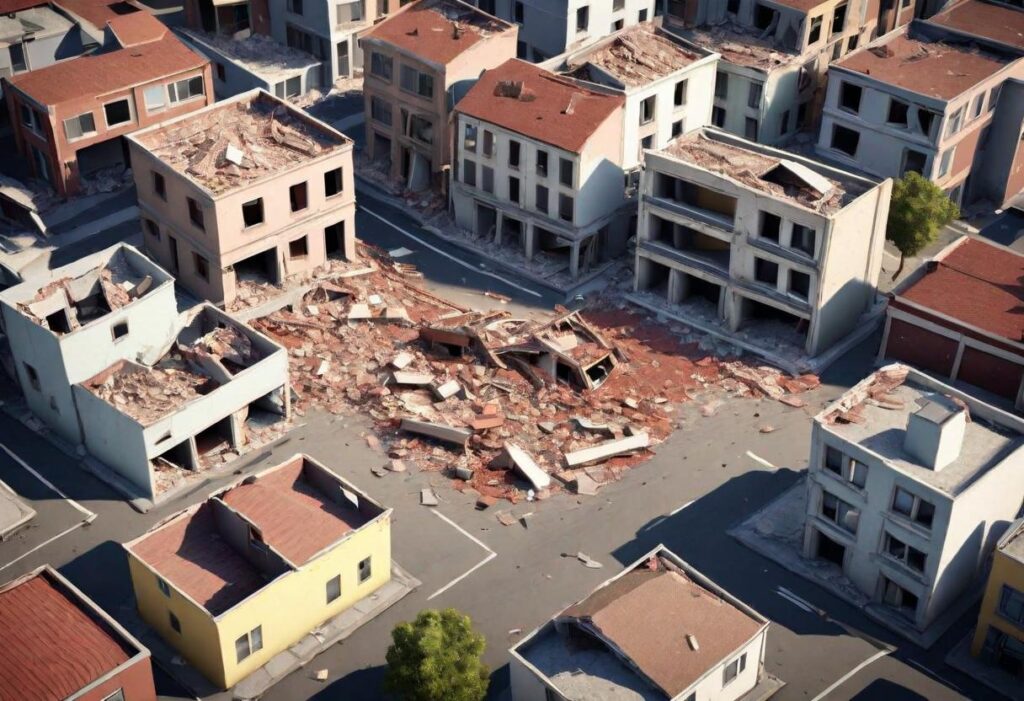In the calm of the today morning, residents of New Jersey were jolted awake by a rare and unexpected event – an earthquake. While earthquakes are not unheard of in New Jersey, they are relatively infrequent compared to other regions of the country. This seismic activity serves as a reminder of the importance of preparedness and vigilance in the face of natural disasters.

Understanding the Earthquake
On the morning of today, a magnitude 4.8 earthquake struck at 10:23 local time (15:23 BST) near Lebanon, New Jersey, and could be felt from Pennsylvania to Connecticut., sending tremors throughout the region. The earthquake originated at a depth of 4.7 kilometers below the Earth’s surface and was felt across surrounding counties in New Jersey. While the earthquake caused minor shaking and rattled nerves, there were no reports of significant damage or injuries.
Causes of Earthquakes in New Jersey
New Jersey sits atop the Ramapo Fault, a geological feature that extends across the state and into neighboring areas. While not as active as the famous San Andreas Fault in California, the Ramapo Fault is capable of producing earthquakes with magnitudes of up to 5.0 or higher. The exact cause of the recent earthquake in New Jersey is still under investigation, but it is believed to be the result of tectonic activity along the fault line.
Impact on Residents
For many residents of New Jersey, the earthquake came as a surprise, as seismic activity of this magnitude is rare in the region. While the shaking was relatively minor, it served as a stark reminder of the unpredictable nature of earthquakes and the importance of being prepared for emergencies. Some residents reported feeling frightened or anxious in the aftermath of the earthquake, while others expressed gratitude that no significant damage occurred.
Preparing for the Future
While earthquakes are rare in New Jersey, they can and do occur. It is essential for residents to take steps to prepare themselves and their families for the possibility of future seismic events. This includes creating an emergency plan, securing heavy furniture and appliances, and stocking up on supplies such as food, water, and first aid kits. By being proactive and informed, residents can minimize the impact of earthquakes and ensure their safety in the event of an emergency.
Conclusion
The earthquake in New Jersey serves as a wake-up call for residents to remain vigilant and prepared in the face of natural disasters. While the tremors may have been fleeting, the lessons learned from this event are enduring. By taking steps to prepare and protect themselves, residents can ensure their safety and resilience in the face of future seismic activity.
Engaging FAQs:
- Are earthquakes common in New Jersey? Earthquakes are relatively rare in New Jersey compared to other parts of the country, but they do occur occasionally due to the presence of the Ramapo Fault.
- What should I do during an earthquake? During an earthquake, it’s essential to drop, cover, and hold on. Find a sturdy piece of furniture to take cover under and hold on until the shaking stops.
- How can I prepare for an earthquake? Preparation is key. Create an emergency plan, secure heavy items in your home, and stock up on essential supplies like food, water, and first aid kits.
- What should I do after an earthquake? After an earthquake, check for injuries and damage, and be prepared for aftershocks. Follow local authorities’ instructions and stay informed through news sources.
- Can earthquakes cause significant damage in New Jersey? While earthquakes in New Jersey are generally less severe than in other regions, they can still cause damage to buildings and infrastructure, especially in older structures not built to withstand seismic activity.






